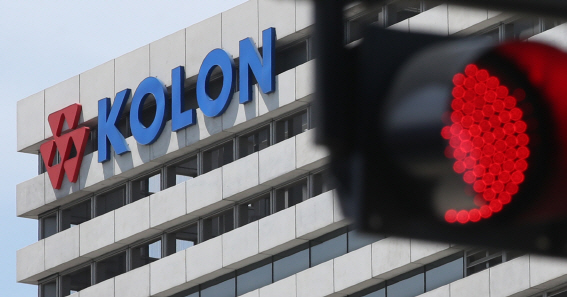
Prosecutors have requested arrest warrants for two executives of Kolon Life Science (KLS) regarding the ‘Invossa Incident’.
According to the Supreme Prosecutors’ Office, the Seoul Central District Prosecutors’ Office requested arrest warrants from executives Kim and Cho on charges of ‘Obstruction of Performance of Official Duties by Fraudulent Means’. As executives who played a major role in the process of developing Invossa, conducting medical trials, and attaining the approval of the Ministry of Food and Drug Safety (MFDS), they are suspected of fabricating the ingredients of Invossa and submitting false data for approval.
What is the ‘Invossa Incident’?
After suspicion that the therapy contained unauthorised cells raised in March, the MFDS investigated to reveal that KLS had submitted false data during the application process for the approval in 2017 and revoked the approval of Invossa in May. Unlike the data KLS had used to gain the approval, unauthorised kidney cells were identified in Invossa, cells that are known for the risk of causing malignant tumours. Although KLS has suspended the distribution and sales of Invossa, there are more than 3,700 patients who have already taken the therapy, leaving them under the risk of unpredictable side effects.
What is Invossa?
Invossa is Kolon Life Science’s leading product candidate as “the world’s first allogeneic cell therapy for the treatment of osteoarthritis.” It gained worldwide attention for its novelty for not only treating the symptoms of the disease, such as inflammation and pain, but also for its disease progression delay by regenerating cartilage tissue. The drug consists of two solutions: Solution No. 1 (HC Vial) – cartilage cells, and Solution No. 2 (TC Vial) – transduced cartilage cells affected by the transforming growth factor β1 (TGF-β1). The injection of the mixture of the two solutions into the intra-articular space of the knee attracts immune cells, inducing an anti-inflammatory environment that contributes to pain relief and cartilage tissue regeneration.
What is KLS’s position on the Invossa Incident?
Whilst KLS is denying having acknowledged the contamination of Invossa with cancerous kidney cells before the approval of the drug in July 2017, the MFDS claims that the company purposely concealed the discovery of the wrong cell lines in Invossa during the approval application process.
Although KLS insisted that they noticed the change in ingredients of Invossa in March, conducting tests and onsite inspections, the MFDS revealed that KLS had acknowledged the presence of kidney cells in the drug as early as 2016. Conducting tests and onsite inspections, the ministry confirmed that KLS had identified changes in the location and number of growth-promoting genes in the ingredient cells in April 2016, and that Kolon Tissuegene, KLS’s American subsidiary company, had identified kidney cells in the second fluid of Invossa in March 2017. Neither company reported this major change to the ministry.
Instead, the MFDS announced that KLS deliberately obscured the existence of kidney cells in the second solution. Conducting a Short Tandem Repeat (STR) analysis – a genetic system test, the MFDS identified gag and pol genes, genes that are found only in kidney cells, in the second solution of the drug. If one is to prove that two solutions are composed of the same cells, it should compare one solution to the other, but KLS compared the mixture of the two solutions to the second solution.
In response, the MFDS cancelled the license of Invossa and filed criminal charges against KLS and CEO Lee Woo-seuk on May 30, 2019, and the prosecutors started an investigation.
In June, the prosecutors raided the headquarters of KLS and the Korean branch of Kolon Tissuegene to secure data regarding Invossa. They also raided the MFDS to attain the data used to approve Invossa.
What are the implications of the ‘Invossa Incident’?
Eager for the “World’s First” title, KLS and Kolon Tissuegene failed to keep their ethical dignities as pharmaceutical companies, and, now, they face legal punishment.
Moreover, KLS is also at the risk of destroying all the remaining 40 billion KRW worth Invossa products and Kolon Tissuegene being delisted from the stock market. With the license revoked due to the change in ingredients, Invossa cannot re-apply for a license for a year.


